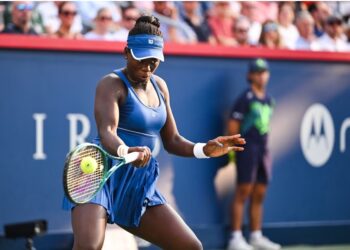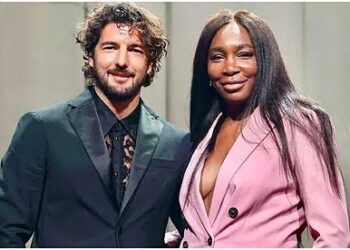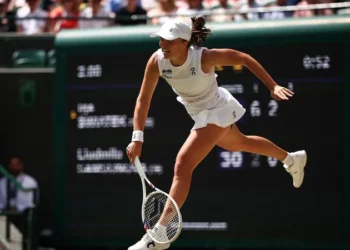Tennis is often described as a lonely sport. Even at its most glamorous — Centre Court at Wimbledon, with the world watching — players stand alone on the baseline, expected to silence the noise inside their own heads while an expectant crowd holds its breath. But for some players, the real noise comes later, in the glare of social media — a place where victory does not guarantee immunity from cruelty.
One such player is [Name], the breakout star of this year’s Wimbledon. The 22-year-old — already dubbed “the model tennis player” for her blend of athletic prowess and striking looks — has stunned fans with her fearless run through the tournament, toppling seasoned opponents with the kind of cool composure that has made commentators tip her as one of the sport’s brightest new talents. Yet, as her fame has grown, so too has the darker side of public attention.
After her last match, which saw her bow out after pushing a top seed to the brink, [Name] took to her Instagram to share a heartfelt message. It wasn’t about her performance, or the joy of living her Wimbledon dream. Instead, she spoke out about the torrent of harassment she’s received online — messages that, while cloaked in the casual viciousness of internet “banter”, cut deeply into how female athletes are judged.
“You look like a man,” read one of countless messages she decided to share publicly. “Too muscular. Too strong. You’re not feminine enough. You should smile more.” For [Name], these comments highlight a painful double standard that female athletes have long confronted: the expectation that they should perform superhuman feats of strength, power and endurance — but still fit neatly into narrow, outdated ideas of beauty.
In her statement, she wrote: “I am proud of my body. It helps me compete with the best in the world. I work hard for every muscle, every inch of strength. But people don’t see that. They see muscles and they think that makes me less of a woman.”
Her words strike a chord with many in the tennis community and beyond. Women in sport — especially those in physically demanding disciplines — have repeatedly spoken about how they are scrutinized not just for their skill, but for how well they conform to a version of femininity that often excludes athletic strength. From Serena Williams being mocked for her physique throughout her career, to countless female footballers, sprinters and weightlifters enduring jabs about looking “manly”, the pattern is depressingly familiar.
For [Name], the contrast is all the more bitter because she has, until now, been celebrated for her appearance. Early in her career, she did some modelling work to support her tennis ambitions — the label “model tennis player” stuck and was often used as a compliment. But that same label now amplifies the hate. Some fans praise her looks but turn on her when her athletic build doesn’t match their ideals of delicacy or glamour. The irony is stark: she is too pretty to be taken seriously, but too strong to be “pretty enough”.
Social media has become both a gift and a curse for modern athletes. It allows them to connect directly with fans, share unfiltered moments, and build their own brand beyond the court. But it also removes the protective layer that once separated players from the raw, often brutal world of online commentary. Abuse can arrive instantly, unchecked, and — for young players in particular — it can be devastating.
In the wake of her post, fellow players have rallied around her. Several prominent women on the tour reshared her words with messages of solidarity. A few male players also spoke out, highlighting how rarely they face this kind of appearance-based harassment. “We have to do better,” one top-10 player posted. “Judging an elite athlete for being strong? That’s backward.”
Beyond tennis, [Name]’s courage in calling out the harassment she faces has reopened a conversation about how women are expected to juggle conflicting expectations — to be powerful but not too powerful, beautiful but not intimidatingly so, tough but still pleasing to look at. For a young athlete already under pressure to deliver results on court, the burden of fighting stereotypes off it can be an unfair extra weight to carry.
As Wimbledon moves on and new stories fill the headlines, [Name] hopes her stand won’t be forgotten. In her final message to her fans, she reminded them that behind every match point, every handshake at the net, there is a human being reading what strangers think about her body. “Be kind,” she wrote simply. “You don’t know who you’re hurting.”
In the end, the “model tennis player” has proven she’s more than just a pretty face — and more than a headline. She is an athlete who refuses to shrink herself to fit the world’s narrow boxes. On the grass of Wimbledon, she’s shown she can surprise the best in the game. Now, off the court, she’s challenging an entir
e culture to do better.











